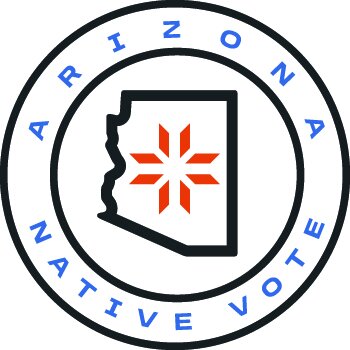Native and Rural Voters are POWERFUL!
Vote all the way down the ballot.
Get voting information from your county recorder (register to vote) and election (runs elections) offices; Apache, Coconino, Gila, and Navajo County.
2026 is a Mid-term Election Year meaning it’s midway between presidential election years. Many important state, county, and federal seats will be up. Like our Congressional District 02 (CD-02), Governor, Attorney General, Secretary of State, Mine Inspector, etc.
2026 Voter Information
Voter Registration
Check your voter registration status right now at my.arizona.vote
Make sure your addresses are up to date; mailing (PO Box) and include your physical address (Google Plus Code). The county needs both. Update all your contact info. This is critical for the county to get in touch with you especially about time-sensitive information.
If you’d like one-on-one help with voter registration, or have a question about voting or elections, connect with an organizer near you. Sign up!
You may also register online (AZ MVD, physical address needed) OR print the AZ state paper form via Arizona Secretary of State Elections website.
Education
Voting is your superpower! We provide non-partisan information so voters in our community can make the most informed decisions.
Indigenous Democracy Class - our free in classroom and community presentation on Native Vote. Grades 8 to 12. Request a presentation by emailing info[at]arizonanativevote.org or call (928)489-8511.
Learn about the voter registration process and what is required
Learn about the candidates and issues on our ballots
Learn about our voting options, such as when and how to receive your ballot
Learn about important dates and deadlines, polling locations, county election offices, Secretary of State elections, and tribal elections.
Increase civic engagement opportunities in tribal and rural communities.
Outreach
Year round presence is key to developing, connecting, and maintaining community relationships.
Investment in tribal and rural communities is so important this is why are expanding our reach to communities and regions that have historically been underrepresented in state and federal elections
Information about Native American voting rights, state and federal election process, voter registration process, knowing key contacts such as county recorder office, tribal election offices, state elections, and more will be provided.
Activities: Voter registration drives, presentations, Indigenous Democracy Class (grades 8-12 school curriculum), tabling at flea markets and other public spaces, information dissemination, canvassing, utilizing tribal media, digital organizing, and tapping into other online and offline creative communication and outreach strategies.





